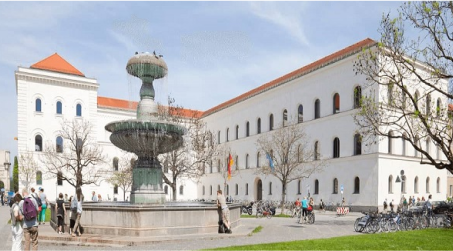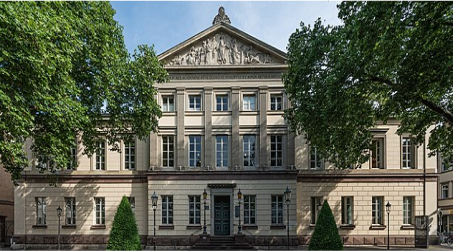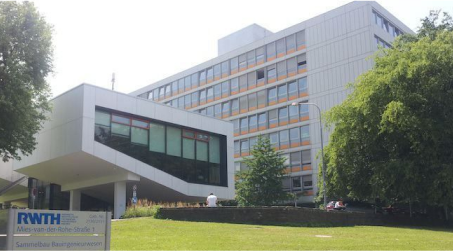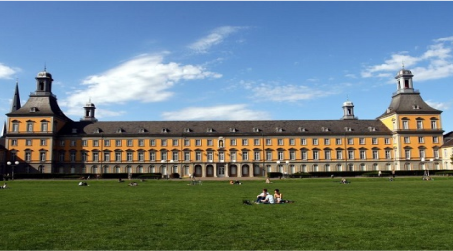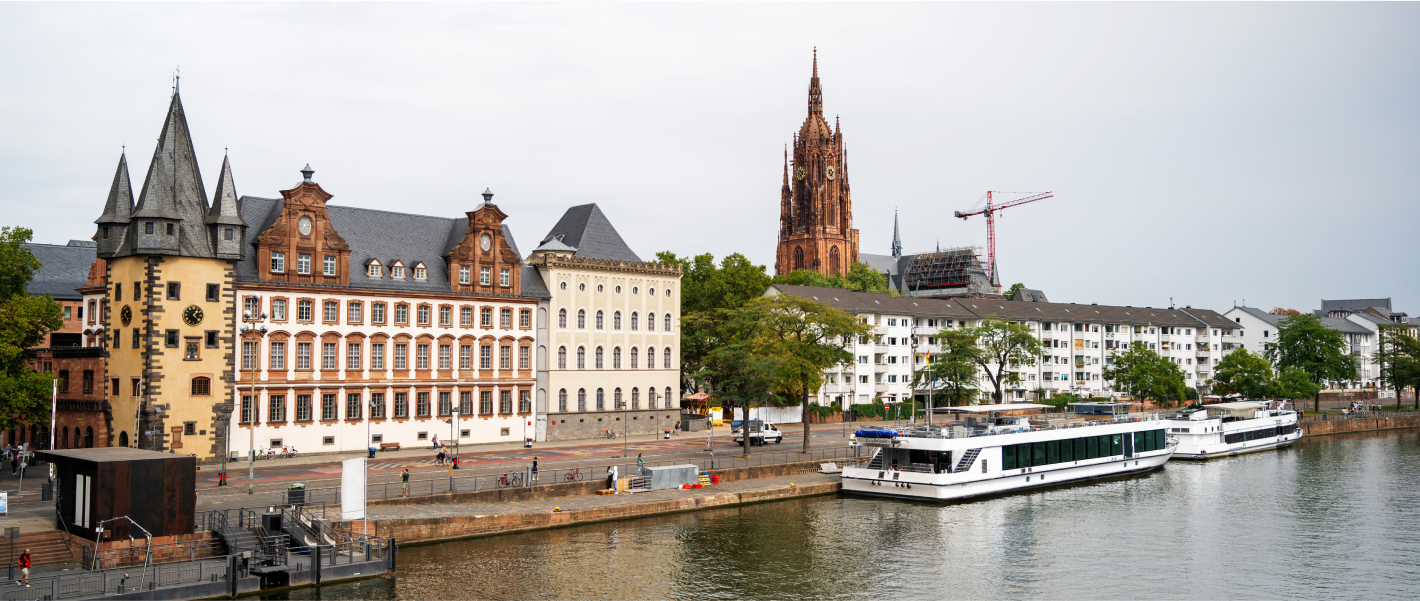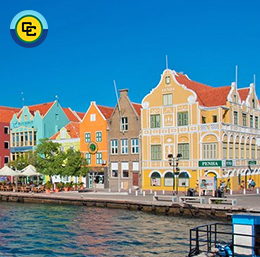Study in Germany: Discover Higher Education Excellence in Deutschland.

Discover why Germany is a top destination for international students. Explore our comprehensive guide on universities, the application process, and life in Germany. Start your educational journey today!
In a land where ancient castles coexist with cutting-edge technology, precision engineering meets love for the arts, and the pursuit of knowledge is celebrated as the joy of living. Germany is a hub of academic excellence, rich cultural diversity, and boundless opportunities. Our SEO-friendly page is your portal to explore the idea of studying in one of Europe’s most dynamic and fascinating destinations. Here, we unravel why Germany has become a magnet for students worldwide and how you, as an Indian student, can be part of this captivating educational experience. Discover the heart of Europe through the lens of education and open the door to a world of possibilities only Germany can offer.

Why study in Germany?
Tuition-Free Universities: Germany’s public universities charge negligible to no tuition fees from international students1. This makes higher education more accessible compared to other countries with high tuition.
World-Class Universities: Germany is home to 429 recognised universities, of which 106 are globally ranked universities1. These universities are valued for the quality of education, opportunities to improve academically, and hands-on experiences during and after studies in a friendly and safe environment.
Explore Europe on Student Visa: Students of German universities are entitled to the same travel rights as German and European students. The residency permit allows you to travel visa-free in the whole Schengen Area.
Variety of Degrees/Programs: Germany offers many degree programs from every field of education that suit everyone’s interests.
Improves Communication and Language Skills: While at an overseas college, you’ll interact with individuals worldwide, which will help you develop intercultural communication skills.
Makes You More Employable: Studying in Germany can enhance your career prospects. The degrees are globally recognised and promise high employability.
Affordable Cost of Living: Despite being a Western European country with high living standards, Germany is relatively inexpensive compared to other Western European countries1.
Cultural Experience: Studying in Germany can be an excellent opportunity to experience a new culture, meet people from different backgrounds, and broaden your perspective.
Top Universities In Germany

How do you apply to study in Germany from India?
Applying to study in Germany from India is a structured process that involves careful planning and adherence to specific requirements. Here’s a step-by-step guide:
Step 1: Research and Choose Your Course and University.
Start your journey by researching available courses and universities in Germany. Consider your academic interests, career goals, and budget when choosing.
Step 2: Check Admission Requirements
Each university and program may have specific admission requirements. Check the prerequisites for your chosen program, including academic qualifications, language proficiency, and any additional entry tests.
Step 3: Proof of Language Proficiency
Most universities in Germany require proof of German or English language proficiency, depending on the language of instruction. You can typically provide language test scores such as IELTS, TOEFL, or TestDaF (for German).
Step 4: Prepare Required Documents
Gather the necessary documents, which typically include:
Academic transcripts and certificates
Curriculum Vitae (CV)
Statement of Purpose (SOP) explaining your motivation and goals
Letters of recommendation
Passport-sized photographs
Valid passport
Standardised test scores (if required)
Proof of language proficiency
Any additional documents specified by the university
Step 5: Online Application Submission
Apply directly through your chosen university’s website or use the national online application portal, “Uni-Assist”, for most programs. Fill out the application form and upload your documents, including the SOP.

Step 6: Pay Application Fees
Pay the application fee, which varies depending on the university and program. Make sure you have a valid payment method.
Step 7: Wait for the Admission Offer
After submitting your application, you’ll need to wait for a response. The university will send you an offer letter if you meet the admission criteria.
Step 8: Acceptance and Visa Application
Once you receive an offer of admission, accept it by following the university’s instructions. You’ll then be eligible to apply for a German student visa.
Step 9: Student Visa Application
Initiate the student visa application process through the German embassy or consulate in India. This includes filling out an online application form, providing the required documents, paying the visa fee, and attending an interview (if necessary).
Step 10: Financial Proof
German authorities may require you to demonstrate sufficient funds to cover your tuition fees and living expenses during your stay in Germany. Ensure you have the necessary financial documents ready.
Step 11: Health and Character Checks
Depending on the duration of your course, you may need to meet health and character requirements. These checks may include medical examinations and police clearances.
Step 12: Visa Approval
Once your visa application is approved, you’ll receive a German student visa, allowing you to enter the country and begin your studies.
Step 13: Travel and Accommodation
Plan your travel to Germany and secure accommodation. Many universities offer assistance with finding on-campus or off-campus housing.
Step 14: Orientation and Enrollment
Attend orientation sessions provided by your university and complete the enrollment process. This is when you’ll receive your student ID and access to campus resources.
Step 15: Begin Your Studies.
Finally, start your educational journey in Germany and embrace the opportunities this diverse and culturally rich country offers.

Visa Validity
The validity of a student visa for Germany varies depending on the specific circumstances of your study program. Here is a general overview of visa validity:
Language Course Visa: If you’re going to Germany for a language course, the visa is typically issued for the duration of the language course, which can be up to one year.
Student Applicant Visa: This visa is usually valid for three months. It allows you to enter Germany to attend university admission tests or interviews. Once you are admitted to a university, you must convert this visa into a national student visa.
National Student Visa: The initial national student visa is usually valid for three months. However, after you arrive in Germany, you must extend it by registering with the local.
Foreigners’ Registration Office (Ausländerbehörde). The extension is granted for your program’s expected duration, typically covering one academic year.
Long-Term National Visa (D-Type Visa): If you are participating in a preparatory or foundation course, the visa can be extended for up to one year. After completing this course, you can apply for a national student visa valid for the standard duration of your degree program.
Ph.D. Students: PhD students are often granted a valid visa for the entire duration of their doctoral studies. It’s common for PhD students to receive a three-year access, which can be renewed if their program extends beyond this period.
Post-Study Work Visa: After completing your studies, you may be eligible for a Post-Study Work Visa. The duration of this visa can vary based on your qualification level. Graduates with a bachelor’s or master’s degree typically receive an 18-month visa, while Ph.D. graduates can get a 36-month visa.
It’s essential to remember that German immigration regulations should manage the validity of your visa and any extensions. Ensure you understand the specific duration of your visa and any renewal or extension requirements. Always consult the German embassy or consulate in your home country and the Foreigners’ Registration Office in Germany for the most accurate and up-to-date information about your visa validity.
Costs of Study in Germany
Germany: Studying in Germany is cost-effective for Indian students. Public universities normally charge semester fees between €100 to €350, which include public transportation and administrative expenses. Private institutions may charge up to €20,000 a year in tuition, particularly for specialized degrees.
The cost of living varies by place, but students typically pay €410 a month on housing. Monthly food costs average about €198. It is noteworthy that several federal states, like Baden-Wü, have imposed tuition fees of up to €3,000 year on non-EU students.
Students must pay an administrative fee at the beginning of each academic year; this fee generally varies per university, but usually it’s between €300 to €500. Germany provides a top-notch education at comparatively affordable prices when compared to other Western nations, which draws in international students.
Employment Opportunities for International Students in Germany
Germany offers attractive employment opportunities for international students, making it a desirable destination for higher education. Here are some critical aspects of employment for international students in Germany:
Part-Time Work:
As an international student in Germany, you can work part-time during your studies. You can work up to 120 total or 240 half days per year without additional approval.
Student Assistant Positions:
Many universities and research institutions in Germany offer student assistant positions. These positions allow you to work on campus and gain practical experience related to your field.
Internships:
Germany is known for its substantial internship opportunities. Internships provide valuable practical experience, and some universities incorporate them into their academic programs.
Post-Study Work Opportunities:
After completing your studies, Germany offers a Post-Study Work Visa that allows you to stay in the country and seek employment related to your field of study. The duration of this visa varies based on your degree level:
Graduates with a bachelor’s or master’s degree typically receive an 18-month visa.
Ph.D. graduates can get a 36-month visa.
High Demand for Skilled Professionals:
Germany has a strong job market and a high demand for skilled professionals in various fields, especially engineering, IT, healthcare, and manufacturing.
Job-Seeker Visa:
If you’re on a student visa and find a job in Germany after completing your studies, you can apply for a Job-Seeker Visa. This visa allows you to stay in Germany for up to six months while looking for employment.
Language Skills:
Proficiency in the German language can significantly enhance your job prospects, as many job opportunities require knowledge of the German language. However, there are also opportunities in international and English-speaking companies.
Job Search Resources:
Utilise job search platforms, university career services, and networking events to explore job opportunities. Research companies and industries that align with your career goals.
Work Regulations:
Ensure you understand the regulations and limitations regarding student work and post-study work options. Compliance with visa and work regulations is crucial to maintain legal status.
Networking:
Building a professional network in Germany can be highly beneficial. Attend industry events career fairs, and connect with professionals in your field.
Stay informed about the latest immigration and employment regulations, which may change. Leveraging your academic qualifications and work experience in
Germany can lead to a successful and fulfilling career in one of Europe’s economic powerhouses.
Frequently Asked Questions?
Conclusion
In summary, studying in Germany is an opportunity to experience a world-class education, diverse culture, and abundant career prospects. This guide has outlined the journey from selecting universities to student visa applications and post-study employment. Germany welcomes you to embark on this enriching educational adventure and make the most of the many doors it can open for your future.
Contact Us
Have questions or need assistance? Contact us today.
We're here to help you with your immigration and
education journey. Reach out to Rao Consultants for
expert guidance.
EMAIL US
contact@raoconsultants.comSPEAK WITH EXPERT
(079) 67 444 444CHAT WITH EXPERT
+91 7573 008 888Contact-us
"*" indicates required fields
